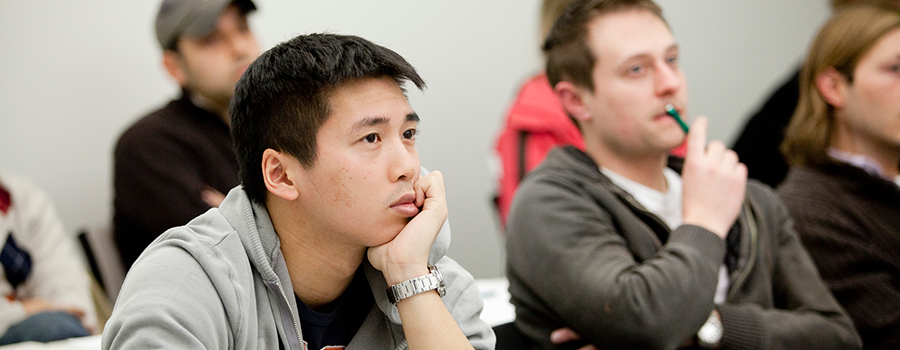Neuroscience Seminar Courses
Seminar Series
The Neuroscience Program in conjunction with the Department of Neuroscience sponsors a seminar series focused on the latest work in neuroscience. Participation of all students is an important part of training.
The seminar series gives students the opportunity to meet prominent visiting neuroscientists, interact with them one-on-one or in small groups, and hear about their research projects. These visits enhance each student’s breadth of knowledge and increase their professional community for essential networking.
Of particular interest is the Tufts Neuroscience Symposium & William Shucart Lecture. The program features an entire day of presentations by leaders in neuroscience research and is capped by a lecture that honors Dr. William Shucart, former professor and chair of Neurosurgery at Tufts University School of Medicine.
Check the GSBS Calendar for our seminar schedule.
Neuroscience Careers Seminar
An important part of graduate training focuses on career choice. The Neuroscience Program prepares trainees for careers in academic and pharmaceutical research, as well as related careers in education, science policy, intellectual property and technology transfer, grants management, publishing, and scientific writing.
To help trainees explore opportunities across the spectrum of career opportunities, the Program in conjunction with the Department of Neuroscience sponsors a seminar series that brings alumni and others who have a PhD in Neuroscience to our campus. Speakers present interactive talks and discuss the advantages and challenges of their chosen career path.
Check the GSBS Calendar for the schedule of Neuroscience Career Seminars.
Student Research Workshop
The Student Presentations course is an important part of Neuroscience training. The weekly meeting features seminar presentations by Neuroscience Program students and postdoctoral fellows working in neuroscience-related areas. A key goal of this activity is developing oral discourse skills.
The format promotes presentation of material in a confident manner and provides ample opportunities to think and discuss creatively and analytically. Written feedback from attendees is given on scientific content, presentation, slide material, speaking style, and interpretation.
All members of the program participate in Student Presentations; students are required to attend during all years of graduate study and are responsible for one presentation each year.
Check the GSBS Calendar for a listing of presentations.
Journal Club
Neuroscience students participate in a weekly student-run journal club that gives students extensive experience in analyzing literature. A theme is chosen for each two to three week block; within each block, students review specific aspects of the topic, and then discuss current articles that are noteworthy.
Journal club participation hones critical reasoning skills, broadens exposure to important research advances (both conceptual and technical) and fosters leadership and team-building proficiency.
After the second year, all students continue to enroll in Journal Club for two more years.
